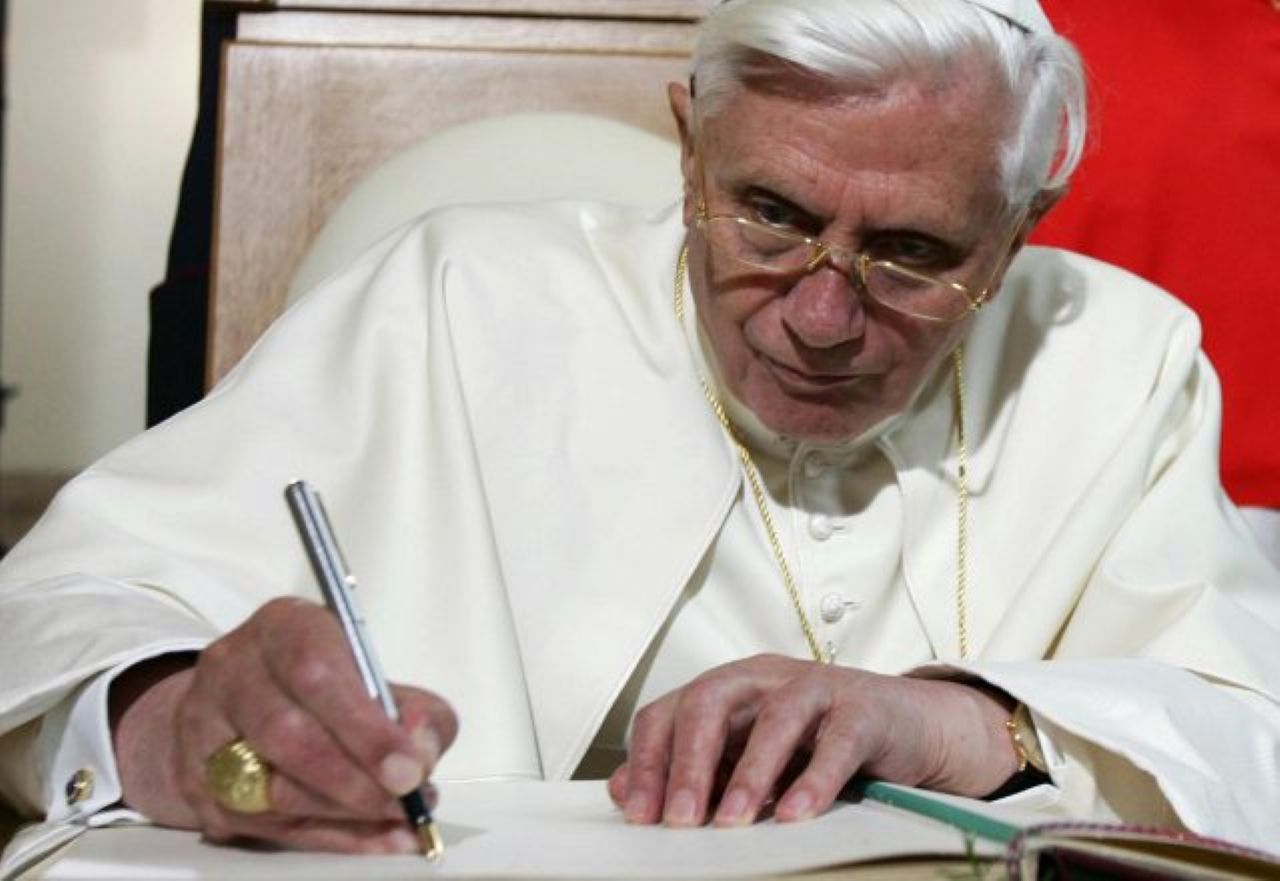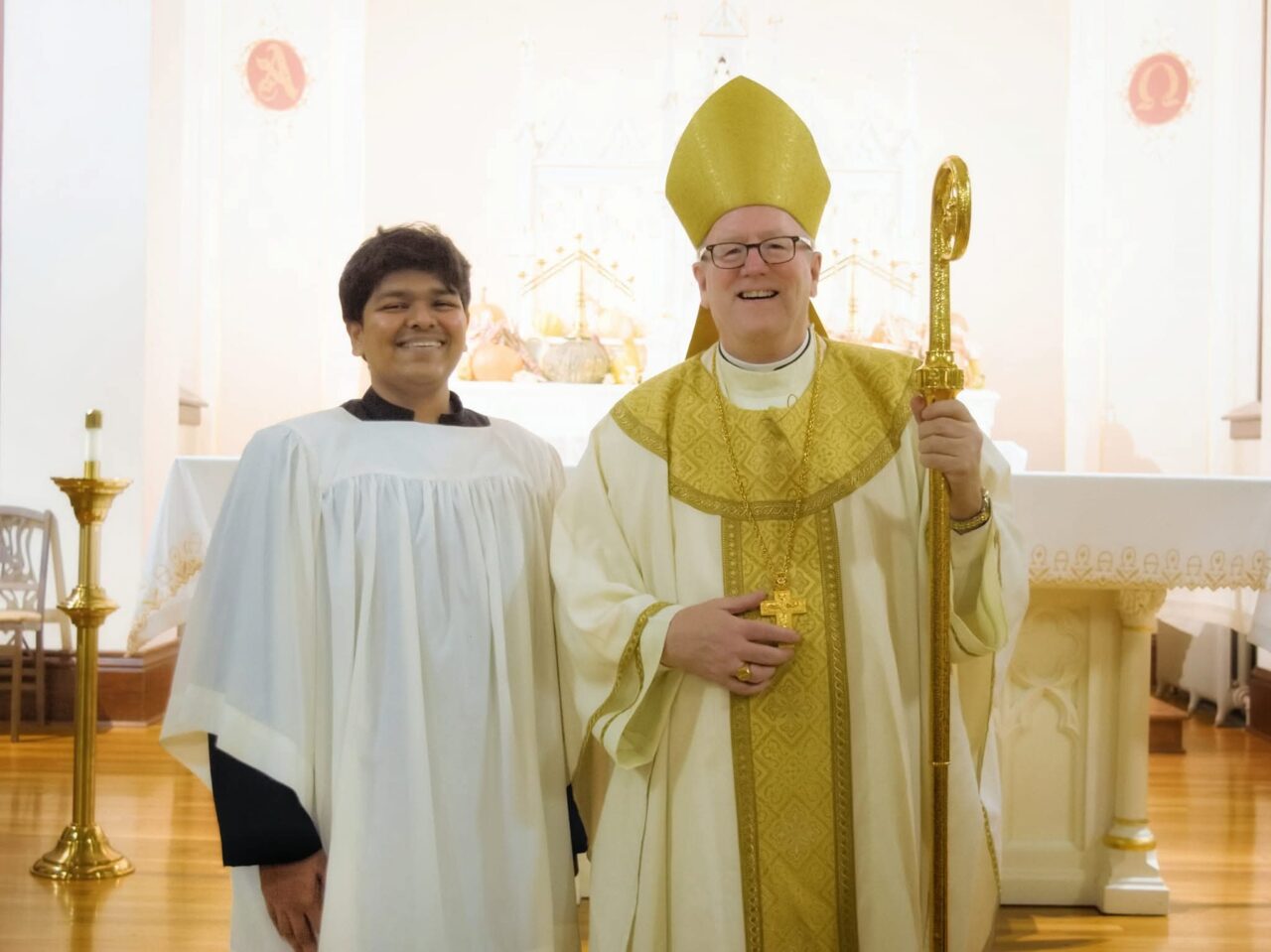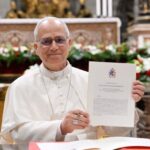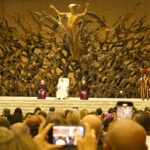At the Marian shrine of Šiluva, known as Lithuania’s “spiritual heart,” the Apostolic Nuncio to the Baltic States, Archbishop Dr. Georg Gänswein, delivered a powerful lecture warning against the dangers of relativism and the reduction of faith to mere political or cultural expression. Speaking at the international conference “How Not to Destroy Freedom and Democracy: Reflecting on the Šiluva Declaration,” the former secretary to Pope Benedict XVI drew deeply from Joseph Ratzinger’s theological insights on Faith, Reason, and Relativism—themes he said are “of decisive relevance in our time.”
“The problem of our age,” Archbishop Gänswein observed, “is that politics has become a substitute for religion, and religion has become political.” In an age of confusion, he said, society risks “believing in politics” while “preaching in the Church increasingly focuses on political issues.” This inversion, he warned, leaves both faith and reason weakened, and believers “unsettled amid the storms of opinion,” echoing the image of St. Paul’s warning in Ephesians 4:14.
Recalling the now-famous homily of Cardinal Joseph Ratzinger before the 2005 conclave—where he spoke of the “dictatorship of relativism”—Gänswein said that today the same threat is even more pervasive. “Everything is permitted,” he noted, “yet we are compelled to remain indifferent toward the truth. This indifference,” he continued, “erodes faith from within, like a poison.”
Faith and Reason in a Technocratic World
Archbishop Gänswein traced the roots of this cultural crisis to what Ratzinger described as the “self-limitation of reason”—a mindset that confines truth to what is technically possible or empirically verifiable. “Truth,” he said, “is no longer judged by its conformity to reality, but by its feasibility.” This, he warned, makes humanity vulnerable to manipulation, especially in a world dominated by digital media and technocratic thinking.
Drawing on Ratzinger’s Introduction to Christianity, Gänswein lamented that science and technology, once ordered to serve humanity, have now assumed quasi-religious authority. “Faith has been replaced by science, and then by politics,” he said. “This gives politics a religious dimension, while faith itself becomes politicized—a reversal that severs both from the truth.”
Quoting Benedict XVI’s 2006 Regensburg Lecture, he reminded the audience that “to act against reason is contrary to the nature of God.” The challenge today, he said, is to “restore reason’s greatness” by reopening it to transcendence. “Only when reason regains its full breadth,” Gänswein insisted, “can we overcome the tyranny of relativism.”
Faith as an Encounter with the Invisible
Turning to the theme of faith, the Archbishop lamented how modern theology has often stripped faith of its supernatural dimension in the name of academic respectability. “Faith has been reduced to a private matter,” he said, “and theology, in seeking scientific prestige, has traded away its treasure like Hans in the Brothers Grimm tale—until it is left with nothing but a grindstone.”
For Ratzinger, and for Gänswein, faith is not a hypothesis or mere opinion, but a living relationship with the Truth who is God. “Faith,” he said, “is an anticipation—it already reaches out toward what awaits us. It is the acceptance of divine Revelation itself, which is Christ.”
Quoting Ratzinger, he noted that Christian belief means “the option that the unseen is more real than the seen.” The scandal of faith, he said, lies precisely in affirming the invisible reality of God in a culture that recognises only what can be verified. “If we abandon this scandal,” Gänswein cautioned, “we abandon faith itself.”
The Antidote to Relativism: Truth and Uprightness
In his concluding remarks, Archbishop Gänswein called for a renewal of both faith and reason grounded in the pursuit of truth. “Relativism,” he said, “is the expression of weak and narrow-minded reasoning. It rests on the false humility that man cannot know the truth, and the false pride that he refuses to seek it.”
Citing the Gospel of John, he reminded listeners that “the truth will set you free” (Jn 8:32). The restoration of freedom, he said, depends on recovering the link between truth and moral uprightness. “Reason cannot be rightly guided if life contradicts the truth,” he added, referencing St. Thomas Aquinas’ teaching that rectitudo—uprightness—is the foundation of all virtue.
Archbishop Gänswein concluded with a warning and a hope. “Relativism acts like a creeping poison,” he said. “It lulls us into comfort, like Hans in his false happiness, while quietly robbing us of our destiny—to know the truth, who is God, and thus to attain eternal life.”
He urged believers, theologians, and educators to take up anew Benedict XVI’s call for “the courage to engage the whole breadth of reason” and to restore faith as a living encounter with the divine Logos. “Only then,” he said, “will freedom and democracy endure—not as human constructs, but as reflections of truth itself.”
SIDEBAR: FIVE KEY TAKEAWAYS FROM ARCHBISHOP GÄNSWEIN’S ŠILUVA LECTURE
Faith, Reason, and Relativism – In a Nutshell
1. Politics Is Becoming the New Religion
Archbishop Gänswein warned that today’s world has begun to believe in politics while the Church too often preaches politics instead of Christ. The result? A dangerous fusion where political ideology wears the garments of faith—and both lose their soul.
2. Relativism Is the “Creeping Poison”
Echoing Pope Benedict XVI, Gänswein described relativism as a “creeping poison” that slowly paralyses moral clarity. When truth becomes optional, conscience becomes negotiable—and freedom begins to rot from the inside.
3. Faith Has Been Replaced by Science—and Then by Politics
Modern man, said Gänswein, measures truth not by what is, but by what works. The worship of progress has turned science into a pseudo-religion. When that fails, politics steps in as the new altar—offering control instead of meaning.
4. Faith Isn’t a Feeling—It’s a Relationship
For Gänswein, faith is not a hypothesis or private comfort zone, but “a living relationship with Christ Himself.” When theologians trade revelation for relevance, the treasure of faith is lost—like Hans trading away his gold for a grindstone.
5. Only Truth Sets Us Free
Freedom and democracy, Gänswein argued, cannot survive without truth. “Relativism comforts, seduces, and then enslaves,” he said. The cure lies in rediscovering the grandeur of reason and the courage to live by the truth that is Jesus Christ.











